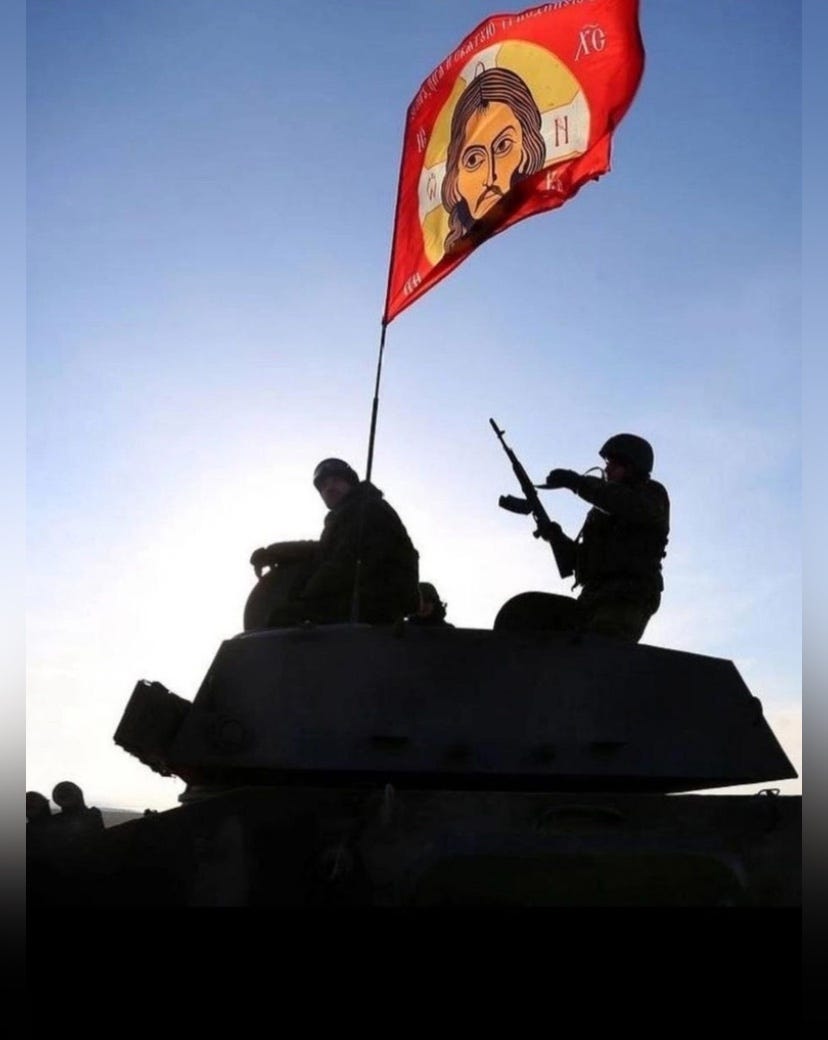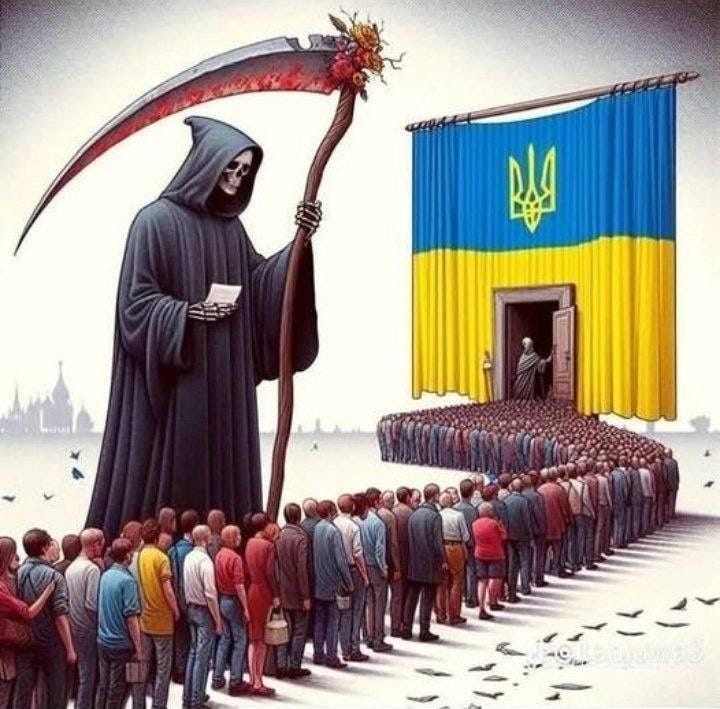by Dmitry Trenin, RT, 5/13/24
Two and a half years into its war against the West in Ukraine, Russia certainly finds itself on a course toward a new sense of itself.
This trend actually predated the military operation but has been powerfully intensified as a result. Since February 2022, Russians have lived in a wholly new reality. For the first time since 1945, the country is really at war, with bitter fighting ongoing along a 2,000-kilometer front line, and not too far from Moscow. Belgorod, a provincial center near the Ukrainian border, is continuously subjected to deadly missile and drone attacks from Kiev’s forces.
Occasionally, Ukrainian drones reach far deeper inland. Yet, Moscow and other big cities continue as if there were no war, and (almost) no Western sanctions either. Streets are full of people and shopping malls and supermarkets offer the usual abundance of goods and food items. One could conclude that Moscow and Belgorod are a tale of two countries, that Russians have managed to live simultaneously both in wartime and peacetime.
This would be a wrong conclusion. Even the part of the country that ostensibly lives ‘in peace’ is markedly different from what it was before the Ukraine conflict began. The central focus of post-Soviet Russia – money – has not been eliminated, of course, but has certainly lost its unquestionable dominance. When many people – not only soldiers but civilians, too – are getting killed, other, non-material values are coming back. Patriotism, reviled and derided in the wake of the Soviet Union’s collapse, is re-emerging in force. In the absence of fresh mobilization, hundreds of thousands of those who sign contracts with the military are motivated by a desire to help the country. Not just by what they can get from it.
Russian popular culture is shedding – slowly, perhaps, but steadily – the habit of imitating what’s hot in the West. Instead, the traditions of Russian literature, including poetry, film, music are being revived and developed. A spike in domestic tourism has opened to ordinary Russians the treasures of their own country – until recently neglected, as a thirst for travel abroad was quenched. (Foreign travel is still available, but difficult logistics make reaching other parts of Europe far less easy than before).
Politically, there is no opposition to speak of against the current system. Almost all of its former figureheads are abroad, and Alexey Navalny has died in prison. A lot of former cultural icons who, after February 2022, decided to emigrate to Israel, Western Europe, or elsewhere, are fast becoming yesterday’s celebrities, as the country moves on. Those Russian journalists and activists who criticize Russia from afar are increasingly losing touch with their previous audiences, and are saddled with accusations of serving the interests of countries fighting Russia in the proxy war in Ukraine. By contrast, nearly two-thirds of young men who left Russia in 2022 for fear of being mobilized have returned, some of them quite embittered by their experience abroad.
Putin’s statement about the need for a new national elite, and his promotion of war veterans as the core of that elite, is more of an intention than a real plan at this stage, but the Russian elite is definitely going through a massive turnover. Many liberal tycoons essentially no longer belong to Russia; their desire to keep their assets in the West has ended up separating them from their native country.
Those who stayed in Russia know that yachts in the Med, villas on the Cote d’Azur, and mansions in London are no longer available to them, or at least no longer safe to keep. Within Russia, a new model of a mid-level businessperson is emerging: one who combines money with social engagement (not the ESG model), and who builds his/her future inside the country.
Russian political culture is returning to its fundamentals. Unlike that of the West, but somewhat similar to the East – it is based on the model of a family. There is order, and there is a hierarchy; rights are balanced by responsibilities; the state is not a necessary evil but the principal public good and the top societal value. Politics, in the Western sense of a constant, often no-holds-barred competition, is viewed as self-serving and destructive; instead, those who are entrusted with being at the helm of the state are expected to arbitrate, to ensure harmony of various interests, etc. Of course, this is an ideal rather than reality. In reality things are more complex and complicated, but the traditional political culture, at its core, is alive and well, and the last 30 to 40 years, while hugely instructive and impactful, have not overturned it.
Russian attitudes to the West are also complex. There is appreciation of Western classical and modern (but not so much post-modern) culture, the arts and technology, and of living standards to an extent. Recently, the previously unadulterated positive image of the West as a society has been spoiled by the aggressive promotion of LGBTQ values, of cancel culture, and the like. What has also changed is the view of Western policies, politics and especially politicians, which have lost the respect most Russians once had for them. The view of the West as Russia’s hereditary adversary has again gained prominence – not primarily because of Kremlin propaganda, but as a function of the West’s own policies, from providing Ukraine with weapons that kill Russian soldiers and civilians, to sanctions which in many ways are indiscriminate, to attempts to cancel Russian culture or to bar Russians from world sports. This hasn’t resulted in Russians viewing individual Westerners as enemies, but the political/media West is widely seen here as a house of adversaries.
There is a clear need for a set of guiding ideas about “who we are,” “where we are in this world” and “where we are going.” However, the word ‘ideology’ is too closely linked in many people’s mind with the rigidity of Soviet Marxism-Leninism. Whatever finally emerges will probably be built on the values-led foundation of traditional religions, starting with Russian Orthodoxy, and will include elements from our past, including the pre-Petrine, imperial, and Soviet periods. The current confrontation with the West makes it imperative that some kind of a new ideological concept finally emerges, in which sovereignty and patriotism, law and justice take a central role. Western propaganda pejoratively refers to it as “Putinism” but, for most Russians, it may be simply described as “Russia’s way.”
Of course, there are people unhappy with policies that have deprived them of certain opportunities. Particularly if those people’s interests are largely in money and individual wealth. Those in this group who have not gone abroad are sitting quietly, harbor misgivings and privately hope that somehow, at whatever cost to others, the “good old days” come back. They are likely to be disappointed. As for the changes within the elite, Putin is aiming to infuse fresh blood and vigor into the system.
It doesn’t look like some sort of ‘purge’ is coming. The changes, nonetheless, will be substantial, given the age factor. Most of the current incumbents in the top places are in their early 70s. Within the next six to ten years these positions will go to younger people. Ensuring that Putin’s legacy lives on is a major task for the Kremlin. Succession is not merely an issue of who eventually emerges in the top position, but what kind of ‘ruling generation’ comes in.
Like this:
Like Loading...

